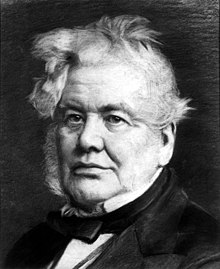The meeting was attended or supported by sixty-one people of different political and religious persuasions, including six Fenians, Butt seemingly having consulted with the Irish Republican Brotherhood before launching his initiative.
Jackson, Alvin: Home Rule: An Irish History 1800—2000
An Irish Parliament sitting in Dublin with control of Ireland’s internal affairs became the ambition of those who supported Home Rule. Isaac Butt though was an unlikely choice to lead such a Movement but he did have some degree of pedigree in Nationalist politics.
He was born on September 6th, 1813 at Glenfin, Co Donegal, the son of a Protestant clergyman. He studied Law in the 1840s and he was a political opponent of Daniel O’Connell who recognised him as a man to watch. But the Famine changed everything and Butt went from being a Conservative Unionist to being a moderate nationalist. He was an MP for various constituencies from the 1850s to the 1870s. In the 1860s he defended many of the Fenians arrested by the British for attempting to overthrow their Rule here.
As the Home Rule movement developed it went through various stages but the gentlemanly Butt remained its Leader. However he could not gain much traction at Westminster and younger and more ambitious men began to snap at his heels in particular John Connor Power and Joseph Biggar who brought into the British Parliament the tactic of ‘Obstructionism’ that is they would talk for hours to stop any legislation being passed. In July 1877 Butt threatened to resign from the party if obstruction continued, and a gulf developed between himself and Parnell, who was growing steadily in the estimation of both the Fenians and the Home Rulers.
Eventually things came to a head in 1878 over the War in Afghanistan as Butt saw this as an Imperial matter that was too important to block as it would damage the Empire. This constant infighting wore him out and he suffered a stroke. He died at his home in Clonskeagh Co Dublin and was buried in the family plot in Stranorlar Co Donegal.
While his legacy today is not much remembered it was he who reignited the Parliamentary campaign to gain Ireland a measure of independence from what was then the most powerful Empire in the World - you might say he lit a spark that is still there - flickering but not extinguished.

No comments:
Post a Comment